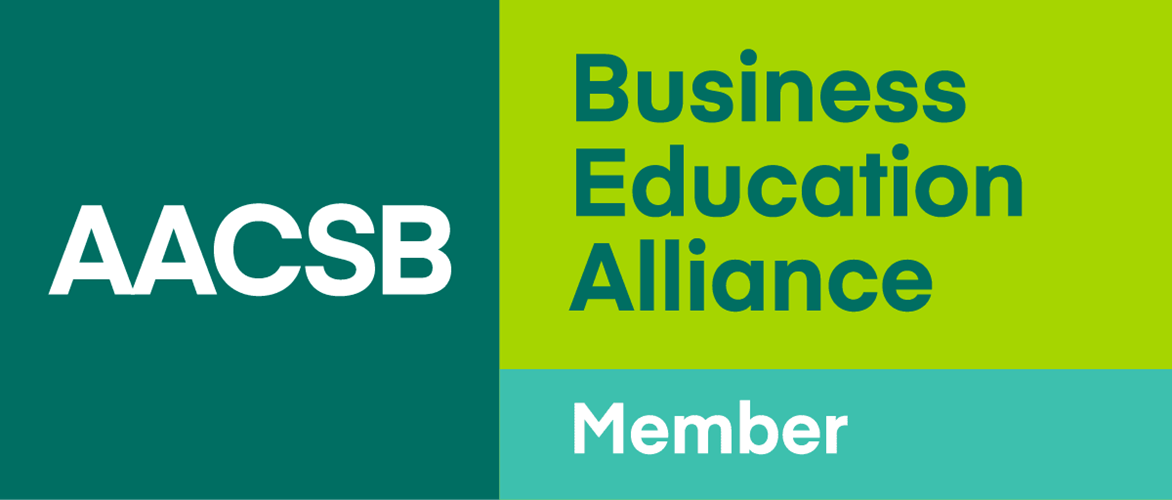Bachelor of Science (BSc) (Hons) Business Administration
The Bachelor of Business Administration at LSBF is a future-focused, career-ready qualification designed for those aiming to build a strong foundation in business administration and management. This comprehensive business administration degree equips students with the knowledge and understanding of key principles relevant to organisations in the modern world. It also introduces practical skills through a professionally oriented curriculum, making it an ideal choice for students seeking a business administration degree in London that blends theory with real-world application.
Through this BSc Business Administration programme, students will explore how businesses operate in complex environments and develop the competencies needed for effective managerial behaviour. This business administration course is one of several professionally aligned business administration courses offered by LSBF, aimed at preparing students for leadership roles across industries. The curriculum, learning and teaching strategy are specifically focused on ensuring students are “work ready” at the point of graduation.
Key Highlights
Start Date: Jan/ May/ Sep
Credit: BSc Hons – 210 ECTS credits
BSc – 180 ECTS credits
Duration*: Full-time - 42 months
Part-time – 72 months
*The maximum duration for completing the programme is 72 months from registration.
Campus: 100% Online
Language: English
Accreditation: MFHEA
Level: MQF/EQF - 6
Awarded By: LSBF Malta
Programme Highlights
The business administration course syllabus is designed to:
- Develop tactical business capabilities, including analysis and interpretation of data, critical evaluation of management theories, selection and synthesis, reasoned argument, research and decision-making.
- Enhance skills in problem-solving, critical thinking and reasoning. Students are evaluated through their knowledge and research using these skills as they relate to business administration and the business environment for applying theory and theoretical models to practical situations.
- Develop effective management, technical, numerical, communication and research skills that can be applied to organisations effectively.
- Analyse different domains of business administration knowledge as well as different management styles and perspectives. This includes an appreciation of the management and leadership theories that underpin best practices.
- Prepare students for graduate employment, research, further study and lifelong learning by developing their intellectual, practical and key (transferable) skills.
Learning Outcomes
- Critically evaluate the impact of organisational behaviour and macroeconomic factors on business administration strategies.
- Analyse the role of financial and marketing strategies in global business environments.
- Apply and assess corporate governance and legal frameworks to manage organisational risks, support long-term profitability, and enhance overall business performance.
- Evaluate cross-cultural management strategies and their influence on international business operations, with a focus on sustainability.
- Apply quantitative methods and research techniques to inform decision-making and improve outcomes across various business functions and strategic areas.
- Assess the interconnections between operations management, financial management and other strategic business administration functions to drive organisational growth, profitability and efficiency.
- Apply research methods to support evidence-based decision-making in finance, investment, and broader business administration strategies.
- Analyse the role of international marketing and cross-cultural management, and other global strategies in driving business expansion and competitiveness in diverse markets.
- Develop strategies for managing business projects that integrate principles of project management, global business practices, and/or governance, ethics to achieve financial and operational objectives.
For further course information Click Here
Programme Structure
Stage I
- Organisational Behaviour
- Quantitative Methods
- Microeconomics
- Introduction to Marketing
- Business Law
- Introduction to Finance
Stage II
- Statistics
- Financial Accounting
- Operations Management
- Information Management Systems
- Human Resource Management
- Corporate Finance
Stage III
- Research Methods
- International Marketing
- Cross-cultural Management and Contemporary Issues
- Project Management (Project)
- Global Business Management (Project)
- Governance and Ethics (Project)
Fee Structure
BSc(Hons) Business Administration |
||
| Programme | Fee | |
| 1st Year | £4,950 | |
| 2nd Year | £4,950 | |
| 3rd Year (Top up) | £7,425 | |
BSc Business Administration |
||
| Programme | Fee | |
| 1st Year | £4,950 | |
| 2nd Year | £4,950 | |
| 3rd Year (Top up) | £4,950 | |
Entry Requirement
Qualification
- Students will need to have the equivalent of GCE A/AS Level 240 UCAS points, as outlined by LSBF Malta on a country-by-country basis, plus English at B2 level (IELTS 5.5 with 5.5 in all components). Students with level 3 International qualifications can be accepted directly into first year since we cannot calculate their UCAS points.
- Students can be granted access directly on year 2 or year 3 of the programme if they hold qualifications equivalent to Level 4 and Level 5 respectively. These can be HNC (Higher National Certificate) and HND (Higher National Diploma) and similar. The qualifications will have to be in a related subject and the exemptions will be mapped and confirmed by the Admissions and Academic Board. Each case will be assessed individually.
- To know about Recognition of Prior Learning Policy (RPL) Click Here!
Application Documents
- The requirements for acceptance based on mature route are work experience of minimum 2 years. The student will need to provide 2 letters of reference and CV.
- If a student has strong qualifications but lacks an official English test, is not from a majority English-speaking country, or has not completed an approved English qualification, they may be evaluated by the Academic Board for an exemption from providing English proficiency proof based on their work experience in an English-speaking professional setting, or any other mean of obtaining a sufficient level of English language. This is to be done through an interview with the board, where the applicant is given an opportunity to demonstrate the level of English and explain his professional and personal journey.
Language
- IELTS 5.5 or equivalent.
- High school completed in English.
- Bachelors completed in English.
- 2 years of work experience in an English-speaking environment (upon approval by admissions board).
Memberships
LSBF has a flexible approach to learning with a modified delivery that places a greater emphasis on applied and interactive learning. Ultimately, we aim to ensure that every single type of learner will study more efficiently, effectively and enjoyably.
Enrol on the online BSc (Hons) Business Administration today:
- Become a member of a rapidly growing online community – consisting of more than 15000 students from 150 different countries
- Take part in live chat sessions with your tutors, mentors and classmates
- Receive comprehensive text books, lecture notes and revision kit
- Measure your knowledge via hundreds of case studies contained in HD quality video sessions
- Test your progress with quizzes, tests and a self-assessed
This BSc (Hons) Business Administration is perfect for those who want more from their careers. A BSc (Hons) can take you one step further to making a meaningful impact on the world of sales and marketing management, and this 100% online course will prepare you for today's complex and competitive business environment.
Each module will be delivered to you via:
- Professionally produced video lectures created by leading business practitioners.
- A designated tutor who will provide support and feedback throughout your programme.
- Case studies and discussion questions to enhance your understanding of theory in context.
- Downloadable e-books and digital library resources to aid your assignment writing and research.
- Access to online forums where you can share and discuss new concepts with fellow students and professionals from around the world.
Request More Info
Or contact a programme advisor by calling



Student comments
Caroline Cisco
Rashme Albert
Purity Laird